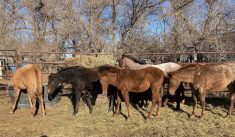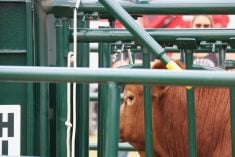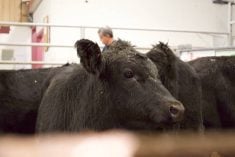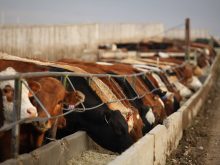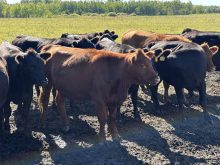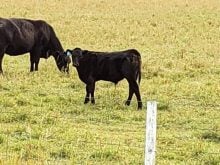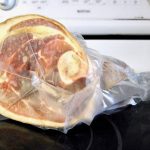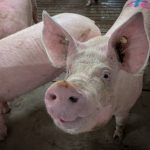Bulls are so hard on bale feeders. They always seem to be pushing and rubbing against the feeders, which just don’t stand up to the pressure. Over time, the bars break off and then the top ring breaks, leaving a protruding piece of metal that is perfect for both people and animals to get hurt on. Gregory tries to keep up with the bulls and weld the feeders back together, but after a while it all comes apart again.
Out of frustration and desperation, Gregory decided to try something different. He found an old steamer wheel and with some drill stem, flat iron and pieces of steel H-piling, he made a bale feeder tough enough to withstand the pressure.
The steamer wheel is about five feet in diameter. Gregory took three, foot-long pieces of drill stem and welded them at an angle to create a cradle for the round bale. The drill stem is long enough to hold the bale in place securely. The steamer wheel is not quite wide enough to hold one of our round bales on its own. But with the drill stem cradling the outside of the bale that gets pushed up due to the small diameter of the steamer wheel, it works perfectly. As the animals eat the bale, gravity pulls the remaining bale down into the steamer wheel.
Read Also
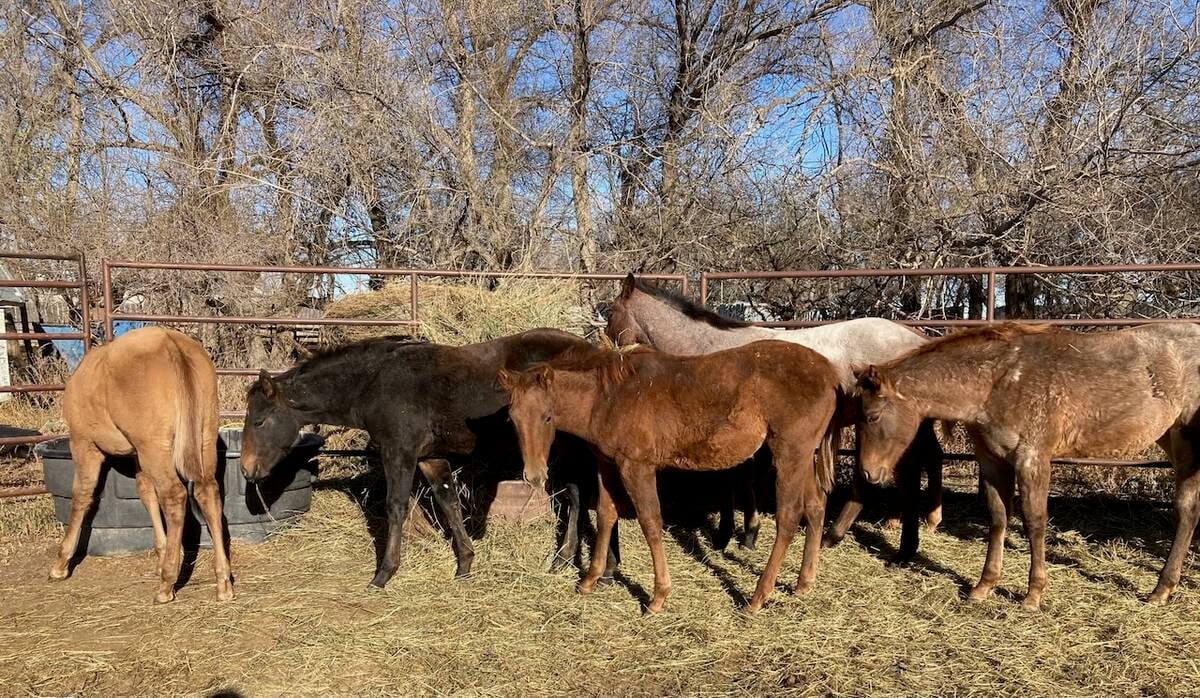
Fall clean-up and bringing animals home at the Eppich ranch
Winter is approaching which meant emoving old fence rows and bringing livestock home before the cold and the snow at the Eppich family ranch.
Gregory placed the drill stems in pairs about six inches apart, with about two feet in between the pairs. On top of each pair, he welded a piece of flat iron to help hold the drill stem together for added strength. It also ensures no animal would ever get hurt on it.

Gregory welded pieces of steel H-piling on the bottom of the steamer wheel. This raised the feeder up so that animals would be less likely to climb into the middle.
It was a strange sight as Gregory carried this massive metal monster with the forks of the skid steer into the bull corral. But it was very satisfying to watch as the bulls rubbed their shoulders and butted their heads on the new bale feeder, and it did not move an inch or give in any way.




